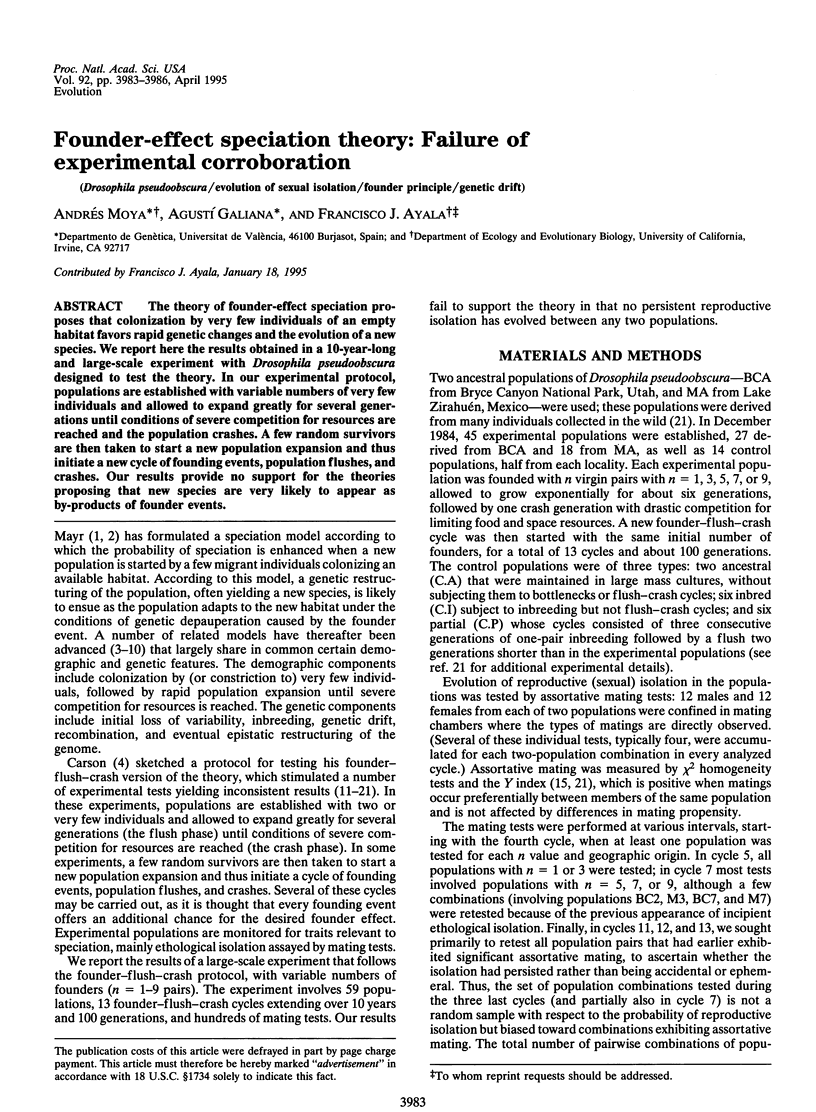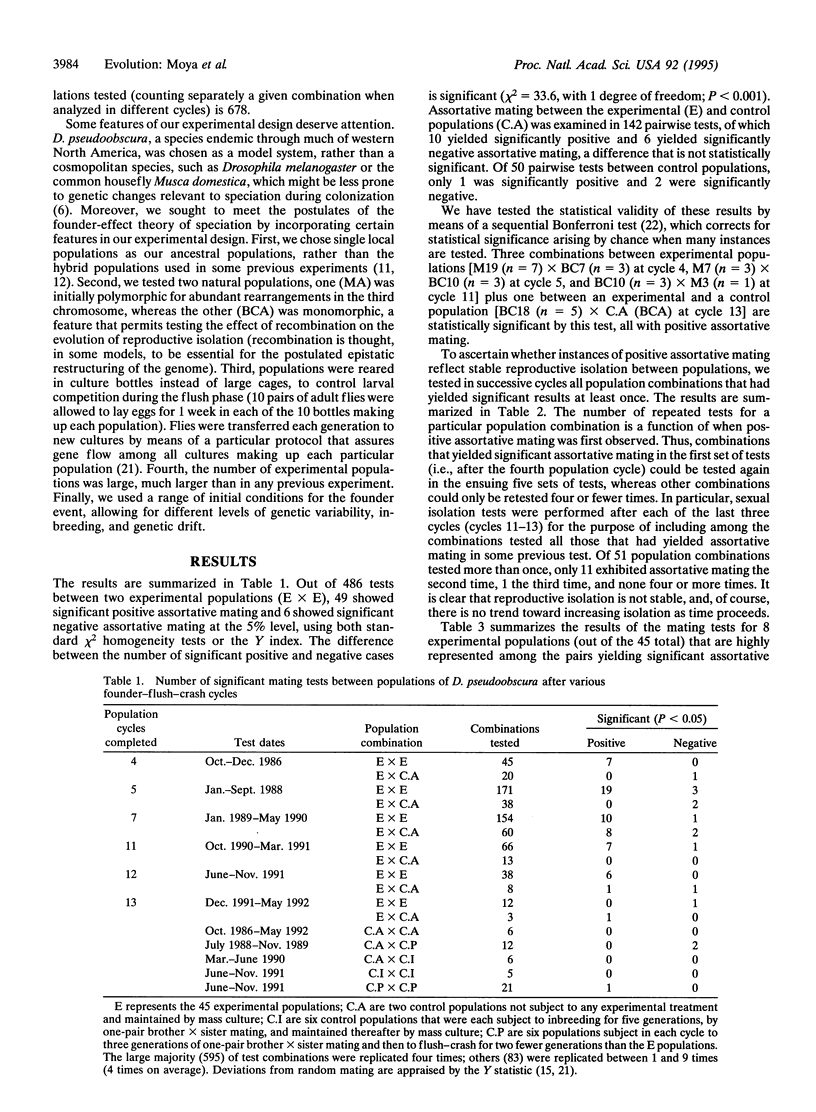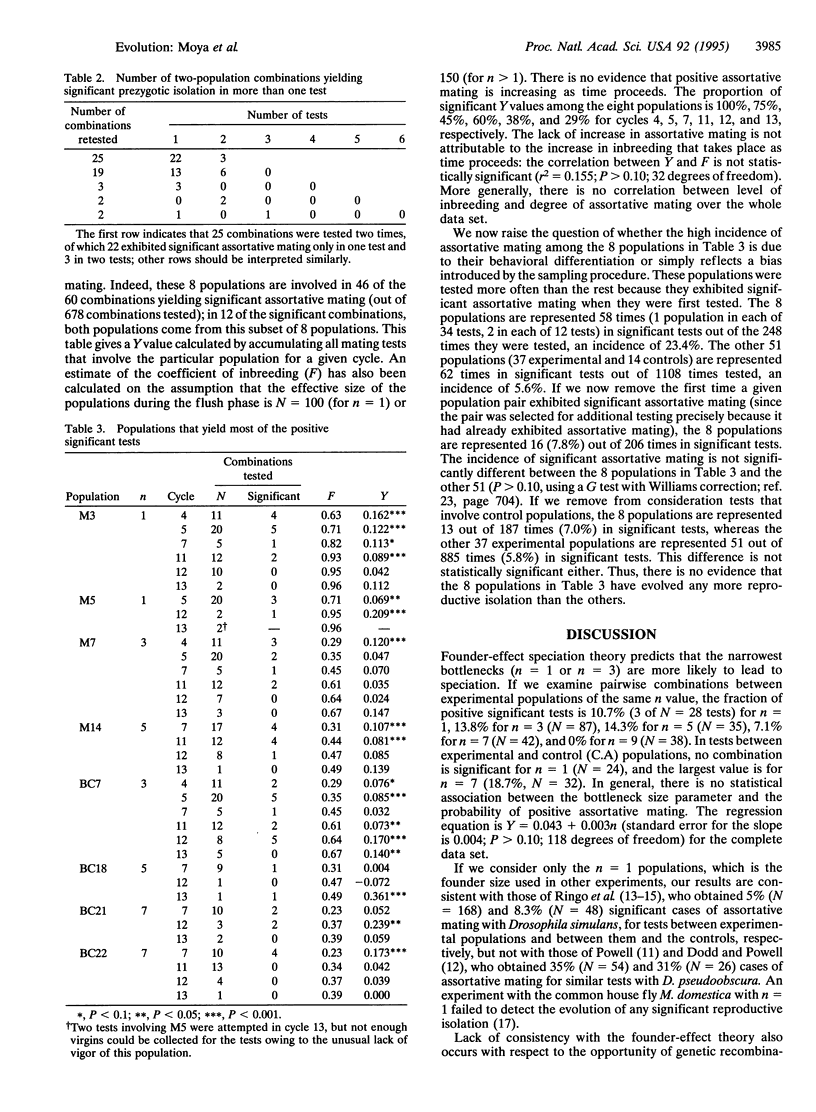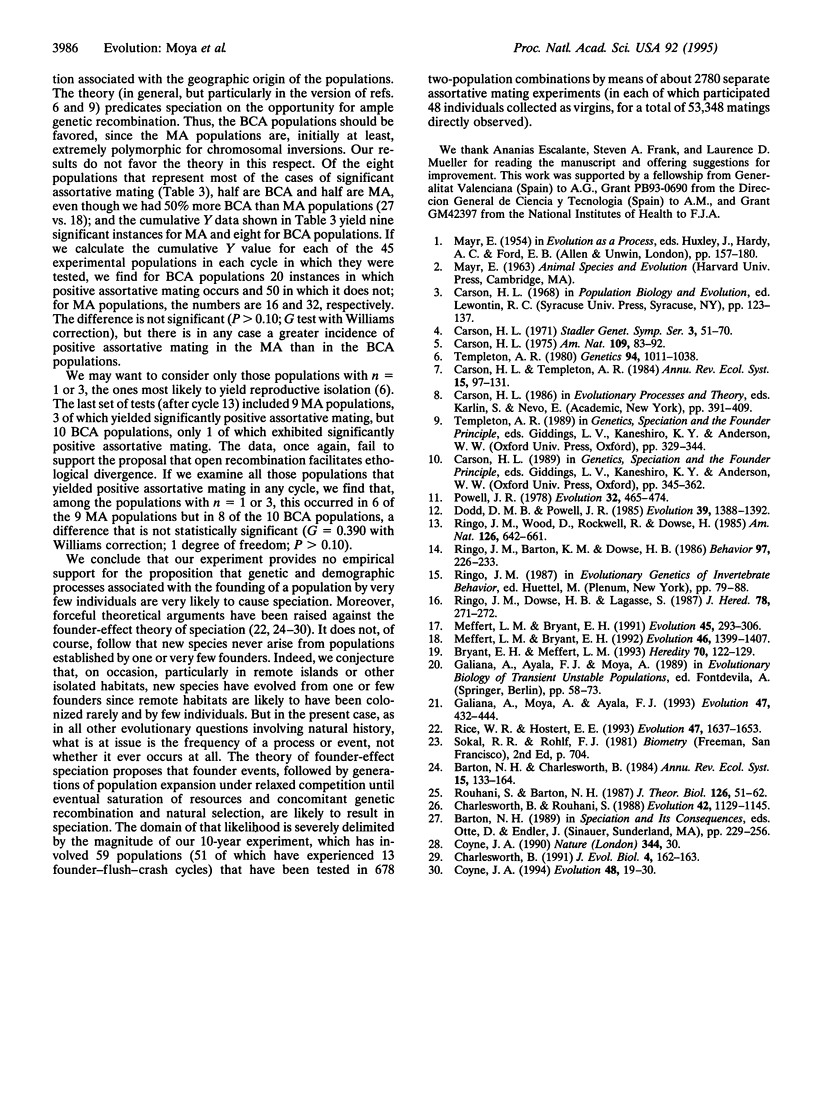Abstract
The theory of founder-effect speciation proposes that colonization by very few individuals of an empty habitat favors rapid genetic changes and the evolution of a new species. We report here the results obtained in a 10-year-long and large-scale experiment with Drosophila pseudoobscura designed to test the theory. In our experimental protocol, populations are established with variable numbers of very few individuals and allowed to expand greatly for several generations until conditions of severe competition for resources are reached and the population crashes. A few random survivors are then taken to start a new population expansion and thus initiate a new cycle of founding events, population flushes, and crashes. Our results provide no support for the theories proposing that new species are very likely to appear as by-products of founder events.
Full text
PDF



Selected References
These references are in PubMed. This may not be the complete list of references from this article.
- Komai M., Bryant B. P. Acetazolamide specifically inhibits lingual trigeminal nerve responses to carbon dioxide. Brain Res. 1993 May 28;612(1-2):122–129. doi: 10.1016/0006-8993(93)91652-9. [DOI] [PubMed] [Google Scholar]
- Templeton A. R. The theory of speciation via the founder principle. Genetics. 1980 Apr;94(4):1011–1038. doi: 10.1093/genetics/94.4.1011. [DOI] [PMC free article] [PubMed] [Google Scholar]


